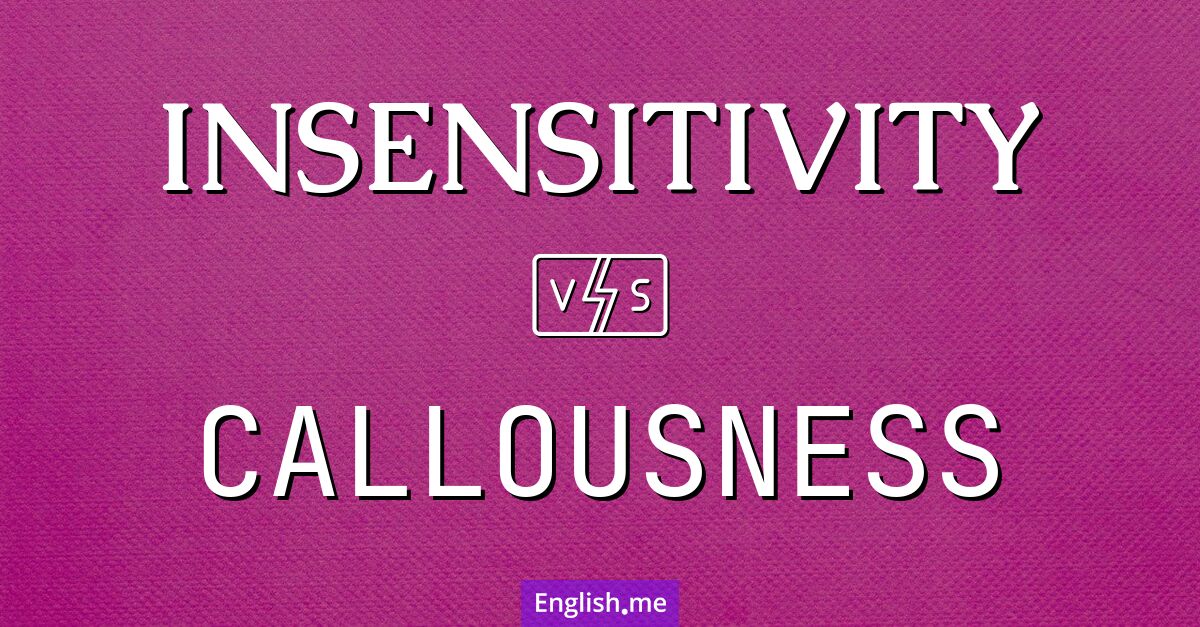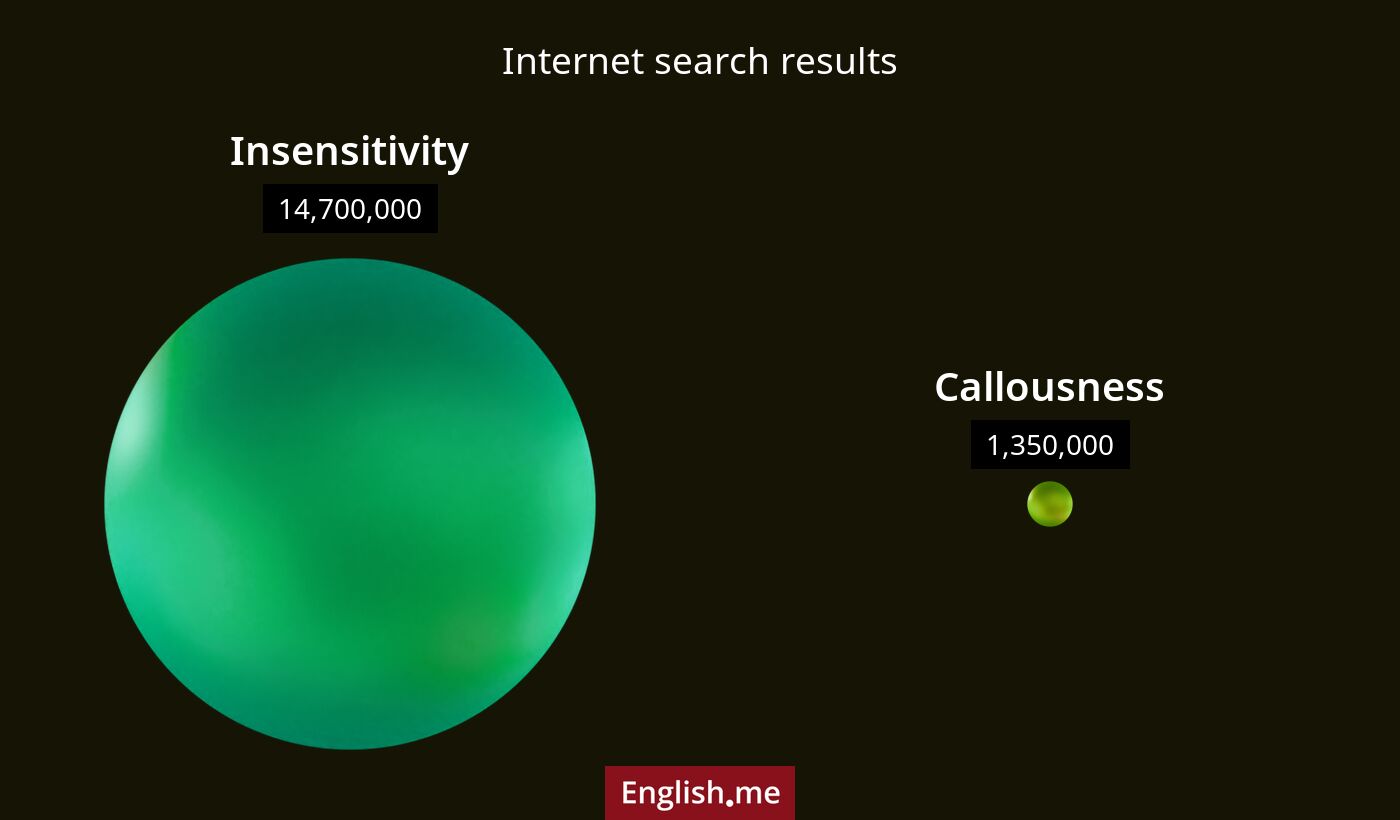"Insensitivity" vs. "callousness": subtle shades of disregard
Reviewed and edited by  Lloyd Cooper 08/10/2024, 12:12
Lloyd Cooper 08/10/2024, 12:12
English.me team member

 What is similar?
What is similar?
Both "insensitivity" and "callousness" describe a lack of concern or empathy towards others" feelings or situations. They are often used to describe behavior that fails to acknowledge or respond to the emotional needs of others.
 What is different?
What is different?
Insensitivity generally refers to a lack of awareness or consideration for others" feelings, and can be unintentional. Callousness implies a more deliberate disregard and an unfeeling nature; it can suggest an active disinterest or disdain for others" emotions.
 Which one is more common?
Which one is more common?

 Examples of usage
Examples of usage
Insensitivity- His insensitivity to her feelings was surprising and hurtful.
- The insensitivity of the comment caused an awkward silence in the room.
- She faced criticism for her insensitivity towards people from different cultures.
- His callousness was evident when he laughed at the tragic news.
- The callousness of the decision shocked everyone at the meeting.
- She was appalled by his callousness during the difficult situation.

 English
English español
español française
française italiano
italiano deutsche
deutsche 日本語
日本語 polski
polski česky
česky svenska
svenska Türkçe
Türkçe Nederlands
Nederlands